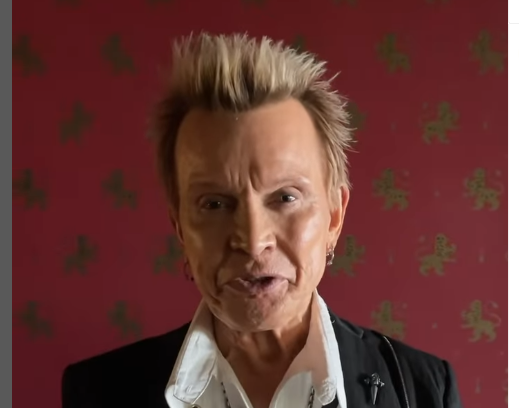White Wedding was more than just another rock anthem when it debuted on MTV in 1982; it was a masterfully twisted, ironically laced love letter. Billy Idol created a song that was remarkably distinct from the typical love ballads of its era with his trademark sneer and leather-clad bravado. The song conveyed a very personal message beneath its polished rebellion: annoyance, rage, and emotional complexity encased in punk electricity.
Idol’s White Wedding was more of a scathing critique of conformity than a celebration, partly because of his sister’s surprise marriage. Amazingly, though, it overcame its angst-driven beginnings to become a generational standard at rock retrospectives, pop culture tributes, and weddings.
Billy Idol – Bio Data
| Full Name | William Michael Albert Broad |
|---|---|
| Stage Name | Billy Idol |
| Date of Birth | November 30, 1955 |
| Birthplace | Stanmore, England |
| Genres | Punk Rock, New Wave, Hard Rock, Pop Rock |
| Notable Hit | White Wedding (1982) |
| Associated Acts | Generation X, Chelsea |
| Years Active | 1976 – Present |
| Website | billyidol.net |
An Anthem Wearing Wedding Lace and Black Leather
Idol’s snarling vocals and thunderous guitar riffs gave White Wedding a strikingly symbolic and delectably unconventional feel, akin to a ceremony held in a burning chapel. Like a sermon gone wrong, the song drew listeners in with its notorious opening riff and ominous rhythm. David Mallet’s accompanying video, which featured a gothic bride, a ring of fire, and a group of punk-out groomsmen, did a remarkable job of graphically conveying the chaos.
This was not your typical march for marriage. It was the punk rock rendition of “I object,” smudged with eyeliner and delivered with a curled lip.
MTV’s Ideal Blend: Idol and the Age of Music Videos
Working with director David Mallet, Idol was able to secure a pivotal role in the beginning of the MTV era. It couldn’t have come at a better time. White Wedding stood out in the early 1980s music television landscape like a disobedient cousin at a church picnic. Its striking images, mesmerizing tempo, and striking aesthetic significantly enhanced the audience’s conception of what a rock star might sound and look like.
White Wedding developed into more than just a tune. It was a four-minute movement that was etched into the collective memory of a whole generation.
Genre-Bending with Punk Bite and Pop Accuracy
Idol helped bring punk into the mainstream with their genre-bending approach, which was especially avant-garde at the time. Idol embraced commercial appeal with theatrical confidence, fusing catchy hooks with raw edges, while hardcore punk bands rejected it. This hybrid energy, accessible yet defiantly underground, became symbolized by White Wedding.
White Wedding found new life among Gen Z rock fans during the past ten years as vinyl made a resurgence and retro aesthetics gained popularity. Stadiums, streaming services, and Spotify playlists called Anti-Wedding Anthems are still haunted by Idol’s razor-sharp voice.
From Opposition to Honor: An Unquenchable Legacy
White Wedding has proven to be incredibly resilient in recent years, withstanding fads that brought down many of its peers. Numerous artists, including punk upstarts and electronic DJs, have covered it, and it can be heard in cult classics like The Wedding Singer. Its dual nature—part celebration, part confrontation—is what makes it so timeless.
The ironic fate of his song has even been acknowledged by Idol himself. Ironically, what started out as a personal protest against hurried marriage has evolved into a beloved wedding tradition. The genius of the song lies in that twist: it’s for both romantics and rebels.
The Punk Renaissance and the Rebirth of Idol
Billy Idol’s catalog is seeing a noticeable comeback in the upcoming years as he continues to tour with legends like Joan Jett. He’s demonstrating that getting older hasn’t diminished his talent with his upcoming album Dream Into It and a recent collaboration with Avril Lavigne. His significance is actually growing.
White Wedding, which served as a springboard to Idol’s constantly changing sound and remarkably adaptable style, continues to be a major theme in his legacy. The song delivers that electric punch of punk purity whether it is accompanied by Steve Stevens’ guitar licks or appears in TikTok montages from the streaming era.


